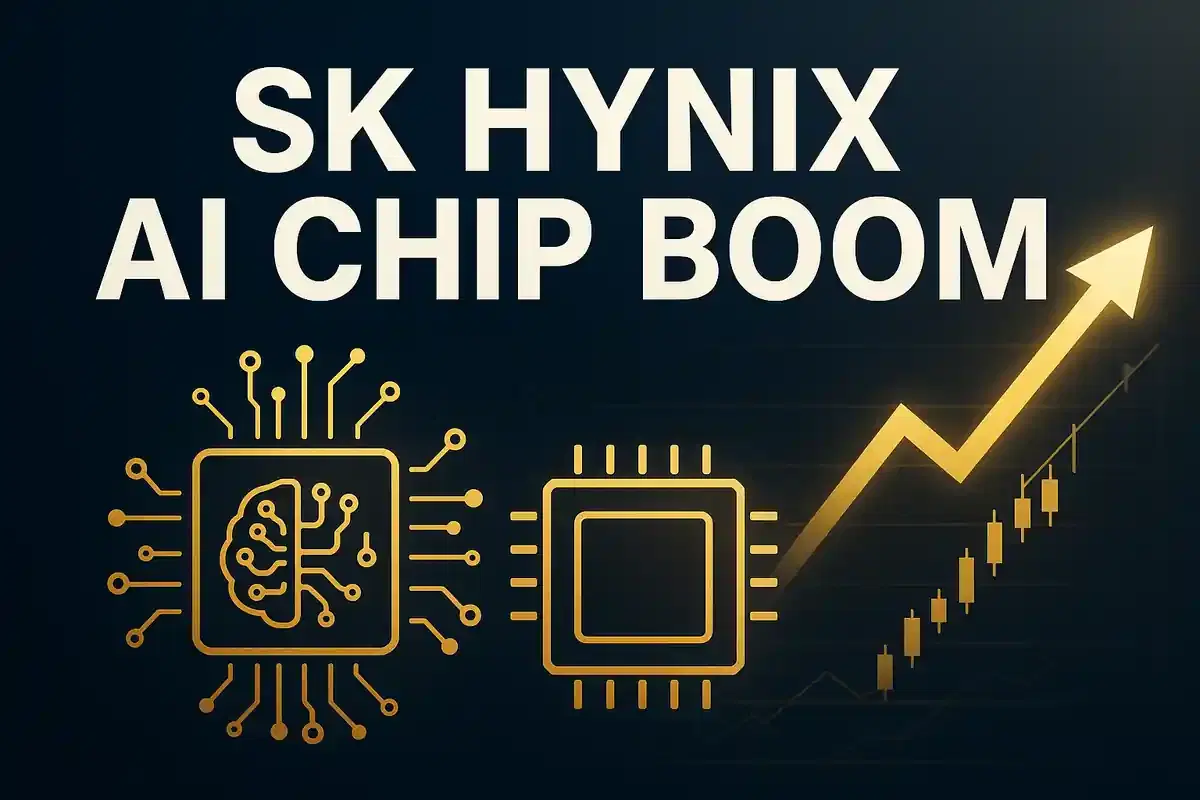SK Hynix Reports 62% Profit Surge Driven by Massive AI Chip Demand
Tech
|
29th October 2025, 2:11 AM

▶
Short Description :
Detailed Coverage :
SK Hynix Inc. has reported a remarkable 62% surge in its profit and revealed that its entire lineup of memory chips for the upcoming year is sold out. This exceptional performance underscores the immense demand generated by the global buildout of artificial intelligence (AI) infrastructure.
The company, a leading supplier of high-bandwidth memory (HBM) chips crucial for AI accelerators, plans to significantly increase its capital expenditure next year to ramp up production capacity. This strategic move is aimed at meeting the unprecedented spending by major tech players like OpenAI, Meta Platforms Inc., and others seeking to train and operate advanced AI services.
SK Hynix will commence supplying its next-generation HBM4 components to customers this quarter, with full-scale sales expected in 2026. The company's results offer investors an early look into the booming AI infrastructure sector, with its partnership with Nvidia Corp. being a key element of this ecosystem.
In the September quarter, SK Hynix posted a record operating profit of 11.4 trillion won ($8 billion) on sales of 24.5 trillion won. The company's shares have seen substantial growth, approximately tripling in value this year.
Despite some investor caution regarding potential AI market bubbles, SK Hynix's performance defies such concerns, highlighting sustained demand. Analysts predict the insatiable HBM demand will persist into next year, driven by large projects like OpenAI's 'Stargate' and sovereign AI initiatives by countries worldwide.
Executives confirmed that HBM has been selling out since 2023 and supply is expected to remain tight through 2027. Many in the industry believe AI's advent will trigger a 'super-cycle' in the memory market, boosting demand for specialized chips like HBMs needed for AI accelerators and services such as ChatGPT. Emerging AI applications in autonomous driving and robotics are also expected to further drive demand for high-end memory chips.
OpenAI alone has committed over $1 trillion to data centers and chips, with projects like 'Stargate' potentially requiring more than double the world's current HBM capacity, necessitating supply agreements with SK Hynix and rival Samsung Electronics Co.
The intense race for AI capabilities is also constraining supplies of conventional memory chips, which are essential in AI data centers. The global semiconductor market is projected to grow at double-digit rates for three consecutive years, a streak not seen in three decades.
Impact: This news significantly impacts the global semiconductor industry, particularly the AI hardware segment. It signals strong growth prospects for companies involved in advanced memory chip manufacturing and AI infrastructure development. The increased demand and production ramp-ups by SK Hynix will influence supply chains, pricing, and the pace of AI innovation. For investors, it highlights opportunities in the technology sector, especially in AI-related hardware. Rating: 8/10
Difficult Terms: High-Bandwidth Memory (HBM): A type of DRAM (Dynamic Random-Access Memory) designed for high-performance applications like AI and graphics processing, offering much higher data transfer speeds than standard DRAM. AI Infrastructure: The foundational hardware, software, and networking components required to develop, deploy, and operate artificial intelligence systems. Hyperscalers: Large cloud computing providers (like Amazon, Google, Microsoft) that operate massive data centers with enormous computing power. Sovereign AI: National initiatives by governments to develop and maintain their own AI capabilities and infrastructure, reducing reliance on foreign technology. AI Accelerators: Specialized hardware components, such as GPUs or AI chips, designed to speed up AI computations. Super-cycle: A prolonged period of significantly high demand and supply growth in a particular industry or market, often driven by transformative technology. Data Centers: Facilities that house computing infrastructure, including servers, storage, and networking equipment, to support digital operations and services. Conventional Memory: Refers to standard types of memory chips (like DDR4 or DDR5 DRAM) used in general computing, as opposed to specialized high-performance memory like HBM.